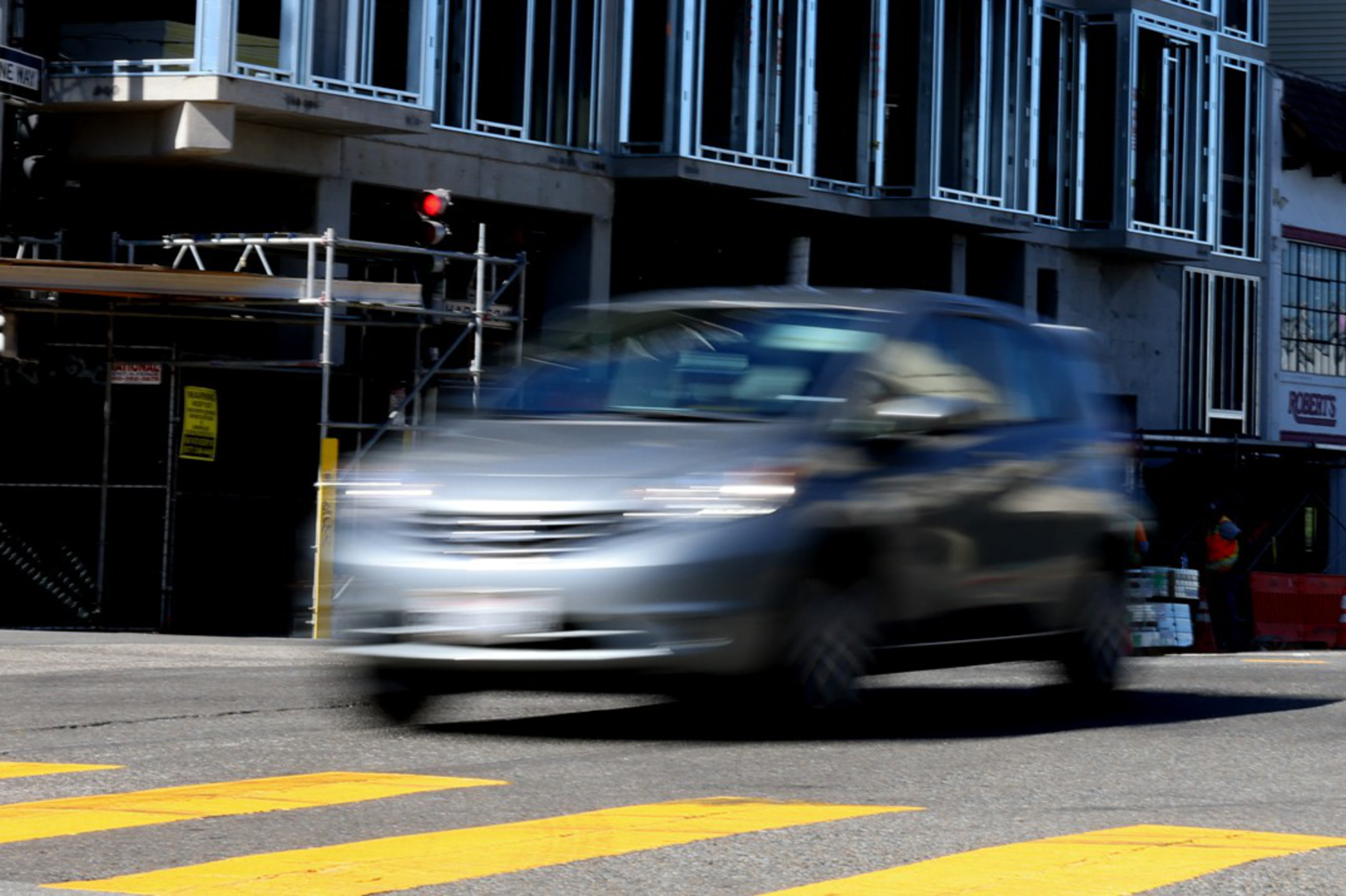San Francisco’s speed cameras began ticketing drivers Tuesday, the start of a safety program that officials hope will curb traffic deaths and injuries on city streets.
The 33-camera network has issued no-fee warnings since March, but beginning at 12:01 a.m. Now, speeders will face fines starting at $50.
Staffers at the San Francisco Municipal Transportation Agency will manually review speeding incidents flagged by the cameras before issuing fines. Drivers will have 30 days to pay or appeal tickets after receiving them in the mail.
“It’s not about catching people speeding in a ‘gotcha’ kind of attitude,” said Viktoriya Wise, the SFMTA’s director of streets. “We just want people to understand that speeding is not safe on our streets.”
San Francisco’s roads remain as deadly as they were two decades ago, despite the efforts of the Vision Zero program to eliminate fatalities. Transit advocates hope that speed cameras — which, unlike police officers, provide consistent, predictable enforcement — can turn the tide.
They may already be working.
Seven weeks after the cameras started issuing warnings, they recorded an average of 31% fewer speeding incidents than before, SFMTA data shows. Seven in 10 vehicles that received a warning did not speed past cameras again.
“Drivers are adjusting their behavior before we even started issuing tickets,” Wise said.
San Francisco is the first city in California to deploy speed cameras under a 2023 bill (opens in new tab) that allowed select cities to pilot the technology. Fees collected by the cameras will go toward covering the cost of the program, Wise said.
Excess revenue will pay for traffic calming measures in San Francisco, and if there’s cash left over, it’ll go to the state’s Active Transportation Program (opens in new tab). SFMTA crews are installing pavement stencils and bigger speed-limit signs near cameras that have recorded a high number of speeders, Wise said.
Unlike the San Francisco Police Department's controversial automated license plate readers — which indiscriminately log information about every passing vehicle for use in investigations — the SFMTA's cameras capture the plates of speeding vehicles only. The transit agency says (opens in new tab) it'll store the data for 120 days and won't share information with other agencies unless compelled by a court order.
The SFMTA will launch a landing page (opens in new tab) with information about the speed cameras before fines take effect Tuesday.
